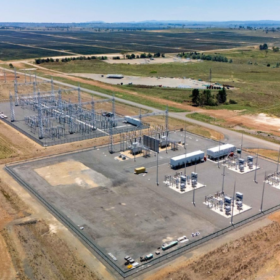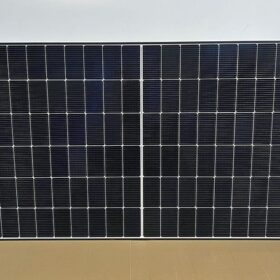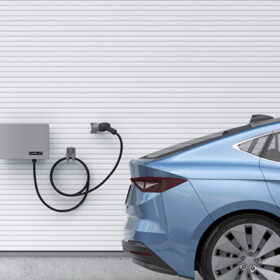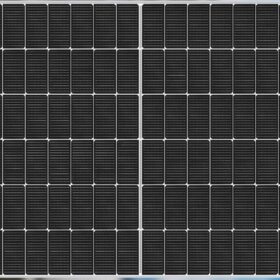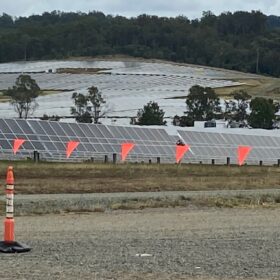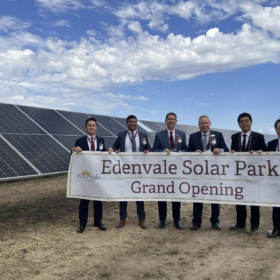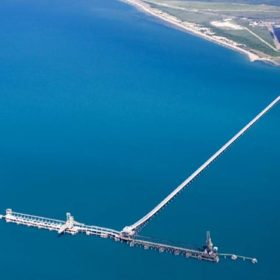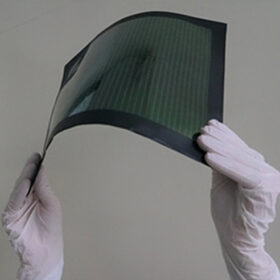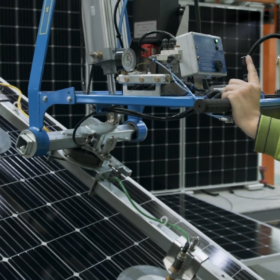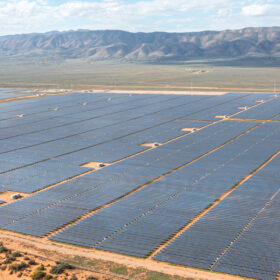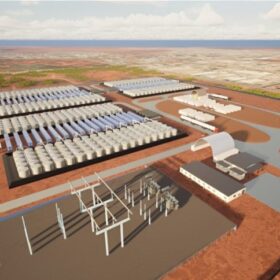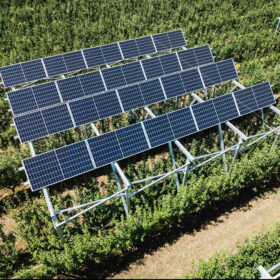ACEN teams with Marubeni on 400 MWh New England battery
ACEN Australia and Marubeni Asian Power Singapore have struck a deal to jointly develop a 200 MW / 400 MWh battery energy storage system alongside ACEN’s multi-stage 720 MW New England solar project being constructed in regional New South Wales.
Leapton unveils 585 W TOPCon solar panel with fiberglass frame
Leapton says its new panels have a temperature coefficient of -0.30% per C and an efficiency of up to 22.65%. They come with a 30-year power output guarantee for 87.4% of the initial yield.
Sharp unveils vehicle-to-home EV charger for PV-powered homes
Sharp has developed vehicle-to-home (V2H) electric-vehicle chargers for PV-powered homes, featuring 6 kW of charging/discharging rated power and an input DC voltage of 340 V. The wall-mounted devices are suitable for indoor and outdoor environments.
Sharp unveils 575 W TOPCon solar panel with 22.26% efficiency
Sharp’s new IEC61215- and IEC61730-certified solar panels have an operating temperature coefficient of -0.30% per C and a bifaciality factor of over 80%.
ACE teams with Japanese player in 500 MW joint venture
Aspiring renewable energy developer ACE Power will partner with the clean energy arm of Japanese energy giant Osaka Gas to jointly develop a portfolio of Australian solar and battery projects with a total capacity of more than 500 MW.
Japanese-owned 204 MW solar park commissioned in Queensland
The 204 MW Edenvale Solar Park near Chinchilla, in the Western Downs region of Queensland, has officially been opened by joint owners Eneos, Japan’s biggest oil refiner, and Sojitz, a Tokyo-based trading house. According to the pair, Edenvale is the largest solar project in Australia to be undertaken by Japanese companies.
1 GW North Queensland hydrogen project gains a new international partner
Japanese company IHI Corporation, which specialises in green ammonia technology to decarbonise industry, has joined the consortium of companies developing the green hydrogen hub HyNQ – North Queensland Clean Energy Project.
Toshiba claims 16.6% efficiency for polymer film-based large-area perovskite solar module
Japanese electronics giant, Toshiba, is continuing to improve the performance of its perovskite solar cell technology.
Australia invests $50 million to expand clean energy supply chains
The Australian government has committed $50 million to support the development and diversification of clean energy supply chains in the Indo-Pacific as it seeks to increase manufacturing opportunities and enhance energy security in the region.
Japan’s Inpex secures 50% share in Enel’s Australian solar portfolio
Japanese oil and gas giant Inpex has struck a deal to buy 50% of Italian utilities giant Enel Group’s Australian renewable energy platform, Enel Green Power Australia, handing it joint control of a solar farms portfolio that includes 254 MW of installed capacity and another 170 MW of renewables under construction.
